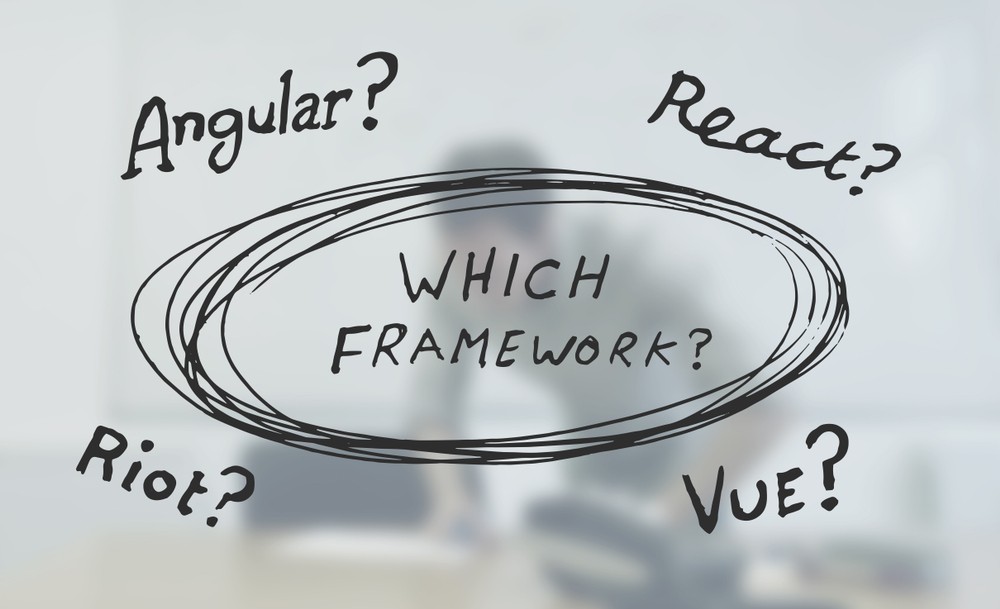Developers can choose from various programming languages and frameworks to build their web applications. Depending on what needs you are fulfilling with your app, React vs Vue are two famous frameworks you can choose from. However, beginners can get confused and may not know which one to follow for their projects. Therefore, this guide will explain the differences and use cases between these two JS frameworks for seamless development procedures.
A Quick Look at React vs. Vue
These are two widely used JavaScript frameworks that help developers efficiently create web applications. You can get a basic overview of both React and Vue in the following sections to know which one to choose:
What is React.js?
It is a JS library developed by Facebook and helps developers build user interactions for web applications. In a Vue JS vs React comparison, it is mainly used for apps with single screens to let users work with its contents without reloading the page. Additionally, the framework follows component-based architecture, meaning the UI is divided into small and reusable pieces. Consequently, each component updates only when needed and makes the app faster.
Its biggest advantage is its Virtual DOM, which updates only the changed parts of the web page. Moreover, the framework is used by many big companies to power their applications, like Meta. Similarly, developers like React because it allows them to build mobile apps using the same codebase.
What is Vue.js?
This is another JS framework that is used for building web interfaces and single-page applications. When you compare React JS vs. Vue JS, it allows developers to craft only the parts they need. Consequently, it is easier to merge into existing projects to save time and resources. Similar to React, it employs a structure based on components to aid users in building reusable UI elements.
However, something else that differentiates both is Vue’s use of two-way data binding. That means the UI updates automatically when the data changes. This makes the development of your desired apps faster and simpler. In addition, Vue is very easy to learn, and its simple documentation helps beginners start coding quickly.
Why Do Developers Use React.js and Vue.js?
Both these frameworks are getting more famous with time and there are good reasons for this. Therefore, the following points will explain why React and Vue are widely used by developers:
- Simple Architecture: Both frameworks use an approach where the UI is divided into small, reusable components. Hence, it makes development faster and helps in maintaining the code in an easy way.
- High Performance: Since these frameworks use the Virtual DOM, they update only the changed components of a page. As a result of this, both ensure that web pages update quickly without unnecessary reloads.
- Large Community: These frameworks have growing communities of developers due to their easy usage. Additionally, they both have many active forums and platforms that enable developers to share and get help.
- Flexibility: React is more flexible, which makes it suitable for large and complex applications. Similarly, Vue has a better structure and is easy to use, which is excellent for small or medium projects.
- Easy Integration: When you see the React vs. Vue comparison, the latter is better for its smooth integration into existing projects. Conversely, React is helpful for building projects from scratch.
- Mobile Development: React is also famous because it enables developers to build mobile apps using JavaScript. On the contrary, Native is popular since it still allows you to create mobile apps easily.
- Strong Ecosystem: You get access to tools like Redux for state management with the React framework. Similarly, Vue has its own official state management tool called Vuex and a framework called Nuxt.js for rendering on the server’s end.
React vs Vue: An In-Depth Comparison
Let’s see the Vue JS vs React in-depth comparison in the form of a table to see which one suits your needs:
| Feature | React | Vue |
|---|---|---|
| Type | JS Library | JS Framework |
| Initial Release | 2013 | 2014 |
| Architecture | Component-based | Component-based |
| Data Binding | Allows both one-way and two-way binding | Supports both one-way and two-way binding |
| State Management | Uses Redux, MobX, or Context API | Uses Vuex |
| Routing | Requires React Router | Uses Vue Router |
| Ecosystem | Rich with third-party libraries | Official ecosystem with built-in tools |
| Flexibility | Highly flexible for customization | Relatively structured and beginner-friendly |
| Mobile Development | Uses React Native | Uses the less famous Vue Native |
| Development Speed | Faster due to reusable components | Quicker due to simpler syntax |
| SSR (Server-Side Rendering) | Uses Next.js framework | Depends on Nuxt.js framework |
| Learning Curve | Steeper due to JSX | Easier due to simpler syntax |
| Community Size | Large with many resources | Growing but smaller |
How to Choose Between Vue JS vs React?
While it depends on your project’s specific demands, many other things can help you choose from the React vs Vue vs Angular options. Since beginners can face confusion, the following points will help them make a choice:
1. Learning Curve & Ease of Use
People who are new to coding can choose Vue.js, as it allows them to start quickly on projects. On the other hand, React requires learning JSX, which is a mix of JavaScript and HTML for handling complex state management. However, you can go for React from the Vue JS vs React competition if you already have experience with JavaScript.
2. Performance & Scalability
Although both offer optimized performance, Vue emerges as a better option for small or medium projects. For large applications with complex features, React is the recommended option. Additionally, it scales well with libraries like Redux and efficiently handles data, making it a better choice in the React JS vs. Vue JS competition.
3. Ecosystem & Community Support
Since React has been around for a longer time, it has a stronger community and more learning resources. From the React vs. Vue comparison, you can choose Vue if you prefer a friendlier and organized ecosystem. However, it comes at the expense of having smaller community support and fewer resources.
4. Flexibility & Structure
Compared to other libraries, React is more flexible because it does not force users to use a specific structure. Consequently, developers can choose different libraries for routing and state management. Since this can be confusing for beginners, Vue.js appears to be a better option in Vue JS vs. React for beginners.
5. Use Cases & Adoption
Developers should prefer React if they are building apps for a big company or working on a complex project. Apart from that, Vue is better for smaller projects or when you need a quick solution. In short, developers widely use React and Vue across companies depending on the size of the project or its complexity.
Why Choose ZEGOCLOUD for Your React or Vue Project?
Beginners can avoid the React vs Vue competition and use platforms like ZEGOCLOUD to get APIs for their projects. Developers can get all types of APIs and SDKs related to communication and streaming from this platform. Additionally, it supports easy integration in the web apps created with React and Vue frameworks. While building a communication platform, try its video call API that facilitates features like virtual background and face beautification, along with basic video conferencing features.

Furthermore, the live streaming SDK enables developers to quickly integrate interaction features with ultra-low latency of 300ms. It comes with features like streaming battles and virtual gifting to engage users and provide them with entertainment. Besides that, the platform provides more than 20 UIKits, so you don’t have to spend time creating things from scratch. It also offers high security for your infrastructure using global physical environments.
Moreover, the platform’s digital human service enables the creation of videos, with features like avatar cloning and AI subtitles. ZEGOCLOUD ensures 99.99% uptime to ensure users get a smooth experience and no delay in services. Additionally, since it is certified by ISO and GDPR, the platform ensures users’ privacy and security.
Conclusion
To conclude, while React and Vue can confuse beginners, they can easily make a choice based on their project requirements. Additionally, they can choose React since it has a bigger community and more learning content. Besides, Vue is a good option when dealing with smaller projects due to its friendly ecosystem. Since these frameworks require extensive coding, a better alternative is to use ZEGOCLOUD APIs to build useful web apps.
Read more:
FAQ
Q1: Is Vue.js better than React?
It depends on your project needs. Vue is known for being simpler and more beginner-friendly, while React offers more flexibility and a larger ecosystem. Both are powerful for building modern web apps.
Q2: Why do people use React over Vue?
React has a larger community, broader adoption in enterprise environments, and more third-party libraries. It’s often chosen for its scalability and tight integration with tools like Next.js.
Q3: Does Netflix use Vue or React?
Netflix primarily uses React in its web interfaces. React’s performance and community support make it a strong choice for large-scale applications.
Q4: Should I learn React or Vue first?
If you’re just starting out, Vue may be easier to pick up. However, React has more job opportunities and is widely used in the industry. Choose based on your learning goals or the stack used by your target companies.
Let’s Build APP Together
Start building with real-time video, voice & chat SDK for apps today!










